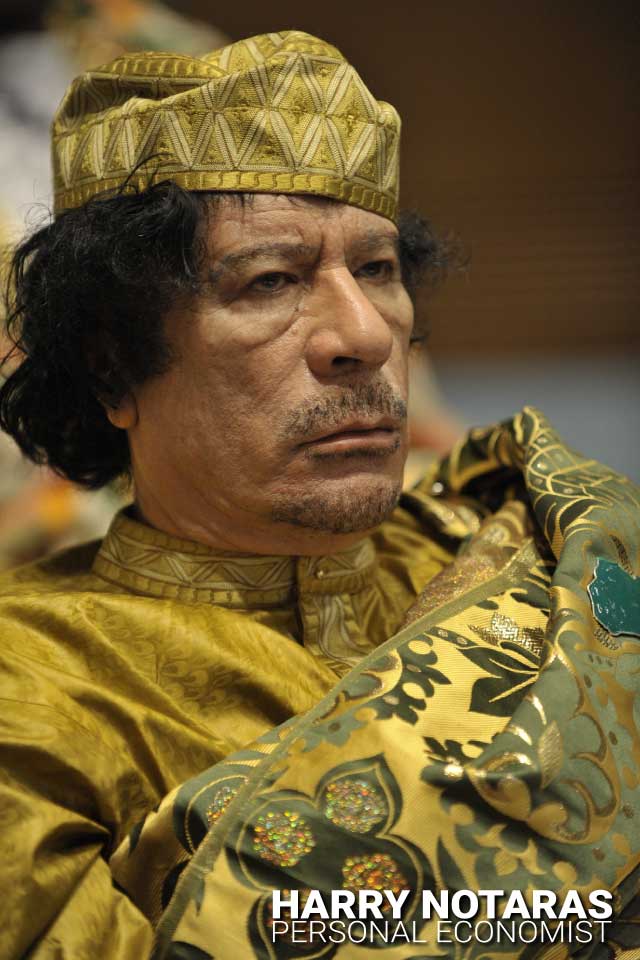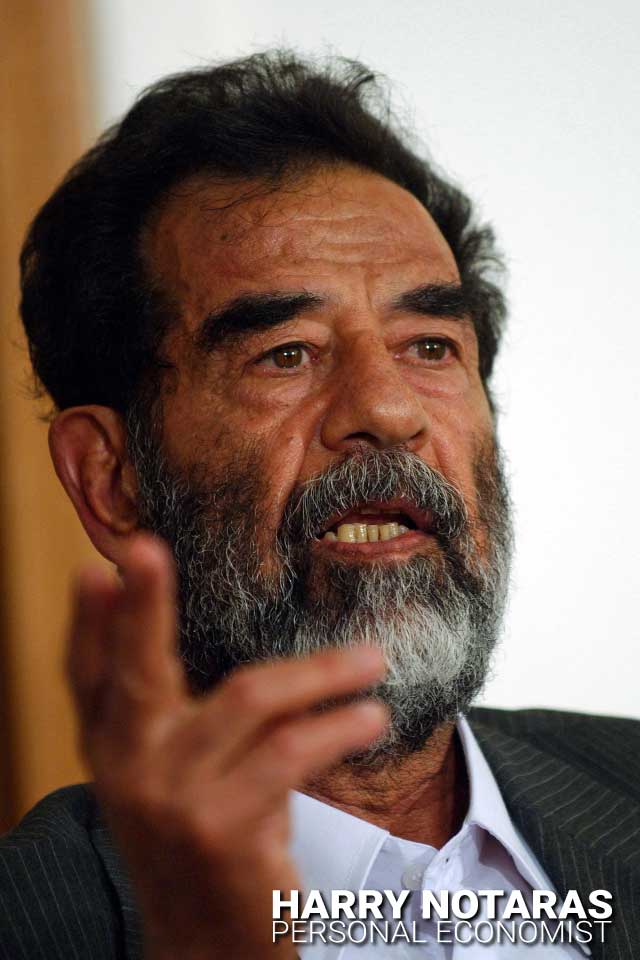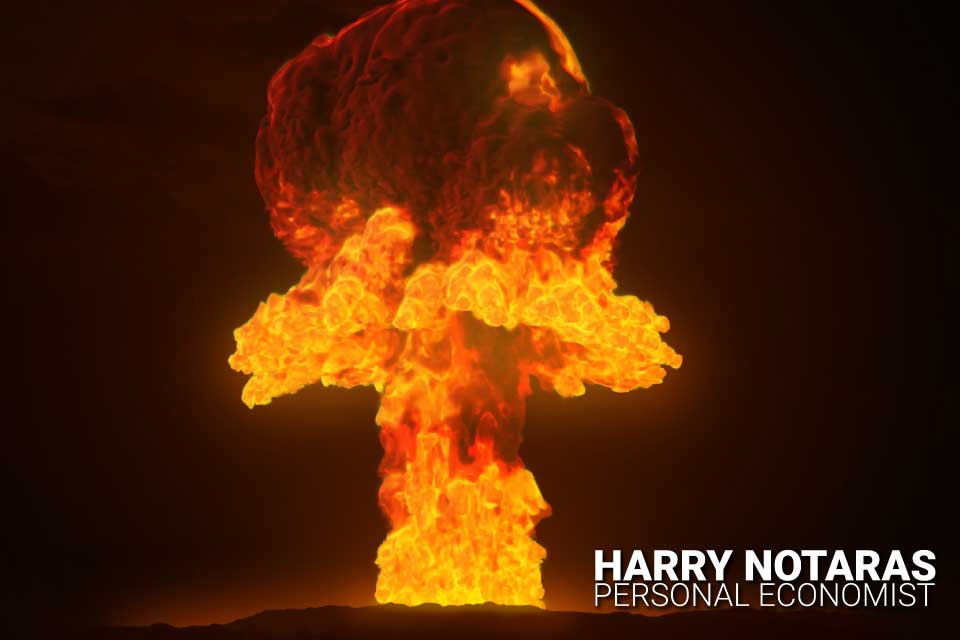The CCP is Defeated – What Now
Modern warfare is industrial in scale and has a political imperative. It has been this way for centuries, if not millennia. The 20th century had many demonstrations of this. From at least the first world war and again with the end of the cold war and more recently. The victor being the group of countries who had developed greater productivity in their economies.
The factor that has complicated this equation the most is the development of nuclear weapons. It is the card that if poor countries that can hold, will give them the ability to negotiate a hand with more powerful countries.
You just need to look at the history of dictators without nuclear weapons to see this.
It is not a straightforward card to carry. In a nuclear armed world, its strength lies in defence rather than offence. Do you think Russia would not have launched a nuclear strike against Ukraine if it didn’t fear the backlash? It is content to use old fashion warfare knowing that no country dares attack inside its borders.
The question becomes if you must choose between economic development or the development of nuclear weapons. What is the more sensible choice to make?
Obviously, context plays a large role in this choice.
If you have a powerful ally that is nuclear armed, the need to have your own is not so pressing. It may even be a disadvantage if you are a middle ranking power, and it disrupts the tacit understanding you have with your powerful ally. Even more so if it causes discomfort among your neighbours. Those who are neither your allies nor your opponents.
Dictators Have No Friends
If you are a dictator, then any allies you have are likely to be temporal. Notwithstanding this temporal timeframe, the dictatorship may last for a generation or even more.
The choice will lead to a different outcome if you are a dictator intent on defending your dictatorship. Nuclear weapons are just the deterrent needed to defend your patch.
Even an enormous power understands that nuclear weapons are essentially a defensive weapon. It means that if you want to extend dominance beyond your region, you must use traditional means. Or even better, asymmetric means.
In our region, the Chinese Communist Party (CCP) has realised this concept and mastered it.
Long ago, it embarked on using market forces and particularly the price mechanism to increase its productivity and become a major power in global affairs.
One-party systems like the CCP have a brittleness about them borne by the defence of those in power over any other considerations. In a liberal democracy, it is a great strength to remove those in power if they do not place national interest above self-preservation.
Brittleness in the CCP’s approach to becoming a dominant power became apparent with the failure of its wolf warrior tactics. It put many of its major trading partners offside.
Europe and the UK are alert to the threatening undercurrents that emanate from the CCP, and the governments are paying closer attention to the type of trade that is occurring with China.
The US is also awake to the threats of having allowed access to a liberal trading regime to a mendaciously mercantilist country like the CCP run China. It has curtailed trade with China in sensitive goods.
Australia became alert to the threat to security some time ago when it prohibited the use of Chinese input into essential communication infrastructure. This was shortly after it signed a free trade agreement with China.
China lacks the institutions that provide the nimbleness to jettison strategies that aren’t working.
So, what does a country that wishes to project power do when it doesn’t want to provoke to large a backlash?
It undertakes asymmetric warfare. China’s resort to this type of warfare has been textbook perfect.
Attack where there are no defenders, such as the Spratly islands. Be a friend to small countries that lack the means to attract sufficient capital for development. The belt and road initiative has been a useful tool for this. It dresses up this colonising policy in a velvet glove as a helping hand and becomes essential to the functioning of these lesser developed countries.
The part of the south Pacific that is close to Australia has been the target of these policies.
The Defeat
China now finds itself deep into a period where 10% annual growth in GDP is a historical anomaly unlikely to repeat itself. Even worse than that, it is in the early stages of a liquidity trap that is leading to a deflationary spiral. This is the essence of why the CCP is defeated.
This leads to increasing desperation of the CCP whose pact with the Chinese people is one where they maintain power on the promise that they can deliver on prosperity.
As this fades, desperation will creep into the calculations of what is required to stay in power.
A Land of Paradoxes
Where does that leave Australia? On a recent radio discussion, I heard a debate about whether we are a middle power. My belief is that we are. We are also in a political cycle where we cannot properly occupy that role.
We are wealthy, but we are unarmed.
We are an important trading nation, but 6 items represent more than half of our trade.
We have a fully employed, but our productivity is static.
We are transitioning our economy but doing it by government fiat with limited use of the price mechanism and the invisible hand.
Speculation on property has overtaken aspirational entrepreneurship the as wealth creator for the middle class.
We have institutions that are full of capable people, but government policy is communist style target driven rather than receptive to rational frank and fearless advice.
Our leaders are in thrall to their constituency rather than the national interest.
The good news is that this is mostly an affliction of sentiment rather than fundamentals. They can be reversed quickly.
The bad news is that to turn sentiment around takes a shock of sufficient magnitude.
This shock is very hard to predict, but nothing stays the same forever, so it will come.
When it comes, the speed of adaption will be the key to getting through.
That is also a key to productivity.
Thank God for the ANZAC spirit. Even in its current distorted and embattled form. I believe we have it in spades. It lies in our embattled middle class who show signs of tiring from the current policy and advice that drifts down from the elite.




